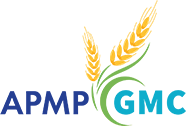By Andrea Dunger, CF APMP
We’ve all been in those situations where drama from another source….be it an outside influence or someone on the proposal team…tries to overshadow the good work you’re trying to do for your client and derail the process. However, as a proposal lead, proposal manager, project manager, whatever your title may be, YOU are the conductor of your proposal train. To keep your train moving smoothly down the track, here are some tips and tricks that I’ve picked up along the way:
- Read, Read, Read. Like the conductor needs to know the direction his or her train is headed, you as the proposal lead need to have that same knowledge. When you get a new RFP, read it, read it again, and read it a third time. Take notes along the way and be prepared for any questions that might come up. If there is something in the RFP you don’t understand, don’t wait…reach out and ask the RFP contact BEFORE you start preparing your response. This is a great way to head off a potential derailment.
- Set up a Kick-off Call and create an Agenda for the call. It’s not enough to have a Kick-off call. You have to lead that discussion as well, and what better way than to have an agenda? Some of the key elements, or “boxcars” to your agenda, could include things like the proposal objectives stated from the RFP, the timeline stated in the RFP, criteria for selection, scope of service, weight factors, a place for background information on the client and/or the opportunity from the sale lead, pricing discussion, written response, what, if any, clarification questions need to be asked, and last but not least, the timeline you as the conductor are going to use to get your proposal complete and submitted into the station.
- Hold weekly status calls. Some trains are longer than others, and if you have the time, you can add more boxcars in the form of weekly status updates. These updates can include things such as responses to any clarification questions that you asked, where the proposal draft currently stands, what is still outstanding and who owes you that information, and any adjustments that need to be made to your internal timeline can be discussed. An agenda for these calls is a great tool as well so that everyone knows ahead of time what is going to be discussed, and offers an opportunity for attendees to provide discussion items to be included as well. I try to send out my agendas 24 hours in advance but no later than four to five hours ahead of the scheduled calls to give everyone an opportunity to become familiar with what will be discussed. Re-establish your internal timeline; be firm and not let others change it for you.
- Final review call. Whether or not you see it on your train, it does need a caboose at the end. A final review call before submitting your response ensures that all relevant parties are in agreement with what the written proposal reflects about your company and the solution(s) you are offering to solve your client’s pain points. Pricing can be confirmed by all members of the proposal team on this call as well. And finally, with everyone on this call to review and confirm, there shouldn’t be anyone not in agreement AFTER the RFP response has been submitted.
- Proposal submission. Every proposal lead has standards to ensure that their proposal arrives “on time at the station”. Build in this time to your internal timeline. For example, if you have a hard copy response, build into the timeline a 48-hour window so that if it gets “derailed” in transit because FedEx or UPS has lost it, you still have an opportunity to reprint is and ship again. For electronic submissions, I try to submit my responses six hours in advance of the deadline to avoid any problems with transmission.
Following a simple process, such as the one I have described here – or a similar one that works for you – will help ensure that your proposal arrives safely and timely and doesn’t jump off the tracks.
Andrea Dunger, CF APMP is a Senior Associate, Proposal Development for Vizient, Inc., supporting healthcare members across the US. She has more than 10 years of proposal management experience in the healthcare field. Andrea earned her CF APMP certification in 2011, and has held various board positions with the APMP Greater Midwest Chapter, including here current position as Vice Chair. Andrea can be reached at [email protected].
